Sunday, October 5, 2025. Annette’s Roundup for Democracy.
Trump’s war on blue states.
Oregon.
BREAKING: Trump’s ICE are ATTACKING peaceful protesters and deploying tear gas in Portland just now.
— Brian Krassenstein (@krassenstein) October 4, 2025
Trump’s America is a war zone. So embarrassed for this country.
pic.twitter.com/D2wNtLEsEO
BREAKING: Federal agents just stormed out of the ICE facility in Portland and began targeting Antifa members for arrest — a chilling escalation that looks less like law enforcement and more like political theater with handcuffs. pic.twitter.com/UoGpg80Yqn
— Brian Allen (@allenanalysis) October 4, 2025
BREAKING: A federal judge has granted a restraining order blocking President Trump's call-up of the National Guard in Portland.https://t.co/Oe3y7MWzuz pic.twitter.com/tulDzJR6Sm
— Kyle Cheney (@kyledcheney) October 4, 2025
The “Federal Judge” above, Karen Immergut, 👆 was appointed by Trump.
Here is the Judge’s opinion and temporary restraining order.
Illinois.
“For Donald Trump, this has never been about safety. This is about control,” Governor Pritzker said. https://t.co/xUfK1SoFpz
— HuffPost (@HuffPost) October 4, 2025
Yesterday, Kristi Noem’s and Greg Bovino’s masked agents threw chemical agents near an elementary school, arrested elected officials exercising their First Amendment rights, and raided a Wal-Mart.
— Governor JB Pritzker (@GovPritzker) October 4, 2025
None of it was in pursuit of justice, but all of it was in pursuit of social media videos.
— Governor JB Pritzker (@GovPritzker) October 4, 2025
🚨 HAPPENING NOW: Heavy military presence outside the Broadview ICE facility in Illinois.
— Ron Smith (@Ronxyz00) October 3, 2025
Snipers can be seen on top of armored vehicles. Protesters are also being arrested.
This is insane. This is not America anymore. pic.twitter.com/PvakidqfbI
$2.1 billion in Chicago infrastructure projects--specifically the Red Line Extension and the Red and Purple Modernization Project--have been put on hold to ensure funding is not flowing via race-based contracting. More info to come soon from @USDOT.
— Russ Vought (@russvought) October 3, 2025
Last night.👇
Trump Authorizes Sending National Guard to Illinois - WSJ
President Trump plans to mobilize 300 members of the National Guard to be sent to Illinois, in the latest development in a long-simmering confrontation between the White House and Illinois Gov. JB Pritzker over crime and immigration policy.
“Amidst ongoing violent riots and lawlessness, that local leaders like Pritzker have refused to step in to quell, President Trump has authorized 300 national guardsmen to protect federal officers and assets,” Abigail Jackson, a White House spokeswoman, said Saturday evening. “President Trump will not turn a blind eye to the lawlessness plaguing American cities.”
The Illinois governor said earlier in the day the Trump administration demanded that he call in the Illinois National Guard, or the Defense Department would federalize 300 members.
“It is absolutely outrageous and un-American to demand a governor send military troops within our own borders and against our will,” Pritzker said.
Trump has increasingly used the military on U.S. soil to either participate in what he has called a crime crackdown—or to protect federal buildings and agents from Americans protesting his policies. Pritzker and Chicago officials have repeatedly touted violent crime reduction in recent years. (Wall Street Journal)
New York.

Trump’s shutdown.
Tells you everything you need to know about who is fighting for you 👇 pic.twitter.com/hmcGHXiNzz
— Adam Schiff (@SenAdamSchiff) October 4, 2025
Donald Trump and the Republicans made it clear they want this to be a maximum pain shutdown for the American people.
— Chuck Schumer (@SenSchumer) October 4, 2025
They're using the American people as political pawns.
This is Trump’s shutdown.
Every child on WIC. Every family on SNAP. Every federal worker doing their job without a paycheck.
— Governor Kathy Hochul (@GovKathyHochul) October 2, 2025
The cost is hunger and needless hardship.
End the GOP shutdown. pic.twitter.com/sA1h79yOKl
It’s day four of MAGA’s outrageous government shutdown. Now, Speaker Johnson gave House Republicans another paid week away from work.
— Rep. Jamie Raskin (@RepRaskin) October 4, 2025
I’m going live on Instagram at 7 PM ET with my friend and Ranking Democrat on the Rules Committee @repmcgovern to talk about this lawlessness.
After some of the biggest health care cuts in American history, Trump and his Republicans are now promoting one of the biggest health care cost increases in American history.
— Governor Gavin Newsom (@CAgovernor) October 4, 2025
They can lie to our faces all they want, but that’s what the GOP's government shutdown is all about.
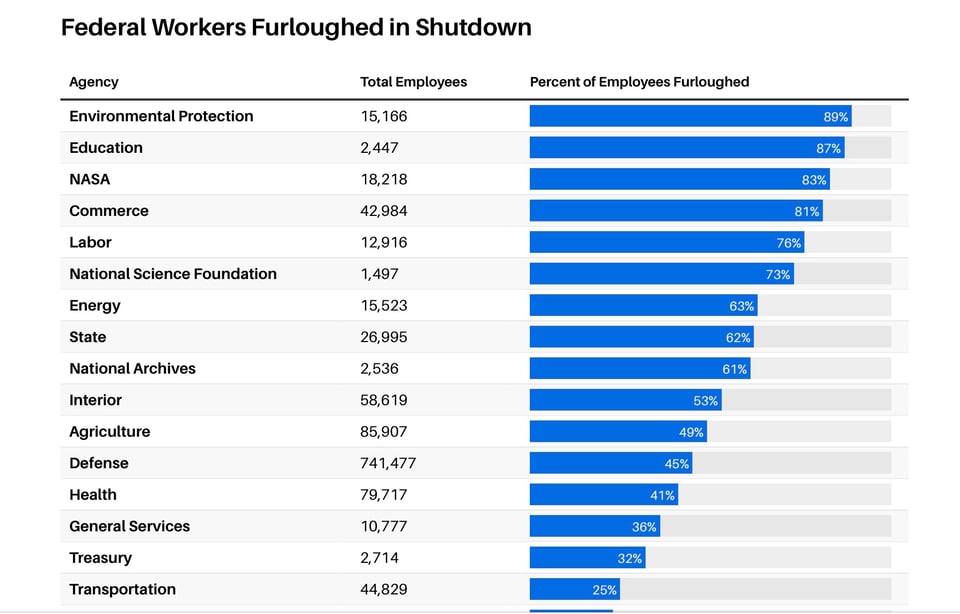

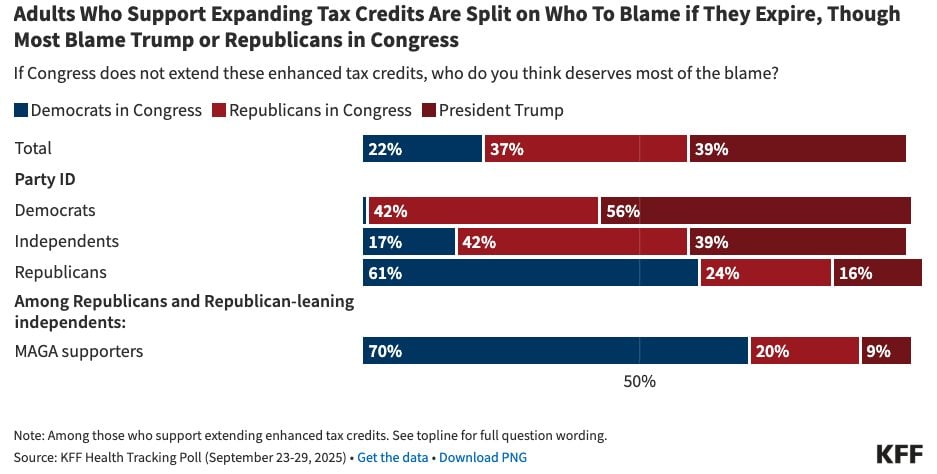
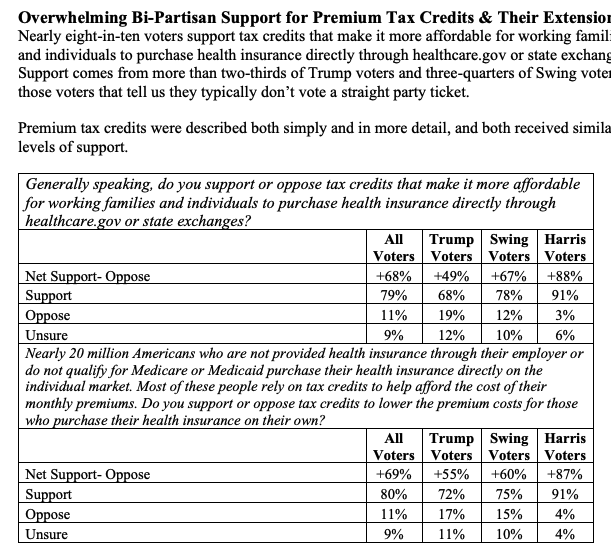
Will the Supreme Court finally turn Trump down?
Legal Setbacks Mount for Trump’s birthright order before Supreme Court review.
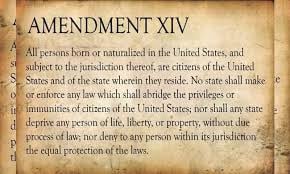
BOSTON (AP) — Over a span of a month this summer, four separate federal courts rejected President Donald Trump’s executive order ending automatic citizenship for the children of people in the country illegally or temporarily.
On Friday, one more court weighed in, and the result was no different.
A three-judge panel of the 1st U.S. Circuit Court of Appeals in Boston said in a unanimous decision that the Republican president cannot enforce the order. The court joined the four others that earlier had issued or upheld decisions blocking it nationwide.
The U.S. Supreme Court is almost certain to have the final word on birthright citizenship. The Trump administration has already asked the high court to take up the issue.
Federal judges have made clear how much his order conflicts with Supreme Court precedent, to say nothing of the Constitution. The Supreme Court is not bound by what those lower court judges have said or even its own past rulings. Nonetheless, those losses could mean an uphill fight for his administration even in front of the justices, who have so far sided with the president on many legal challenges to his effort to remake the government.
The 14th Amendment.
The right to citizenship at birth has long been a bedrock principle in the United States, widely accepted to have been granted by the 14th Amendment to the Constitution in 1868. It was intended to ensure that Black people, including former slaves, had citizenship.
The amendment includes a citizenship clause that says all people born or naturalized in the U.S. and “subject to the jurisdiction thereof” are citizens.
Administration lawyers have argued that inclusion of the phrase “subject to the jurisdiction thereof” means that citizenship is not automatically conferred to children based on their birth in the U.S. They contend it requires children to have primary allegiance to the U.S., and people who are in the U.S. illegally or temporarily — and by extension, their children — cannot claim that because their permanent home is another country to which that allegiance is tied.
White House spokesperson Abigail Jackson said in a statement Friday that the 1st Circuit was misinterpreting the 14th Amendment.
Legal scholars say the administration’s interpretation is countered by the amendment’s history and subsequent Supreme Court rulings.
Experts say members of Congress who debated the amendment clearly understood it would establish an expansive definition of birthright citizenship that included the children of immigrants, and they meant the phrase “subject to the jurisdiction thereof” as subject to U.S. law. The children of Native Americans on tribal land and the children of foreign diplomats — both of whom had immunity from U.S. sovereign authority — were the primary groups of people the clause was meant to exclude from birthright citizenship, according to scholars.
Supreme Court rulings
In 1898, the Supreme Court, in a landmark decision, found that the son of Chinese immigrants was a U.S. citizen under the 14th Amendment, based on his birth in San Francisco. The high court has never ruled directly on the citizenship clause’s application to children of immigrants who are in the U.S. illegally, but a footnote in a 1982 decision suggests there should be no difference between them and the children of foreign-born parents who are in the U.S. legally.
The court’s conservative majority took up a challenge to the birthright order earlier this year, but did not decide its constitutionality. Instead, the court used the case to issue a ruling in June limiting the power of lower courts to issue nationwide injunctions, a victory for the administration.
Lower court decisions
Starting with a federal judge in New Hampshire, court after court has blocked the order.
The justices in June did not rule out court orders with nationwide effects in class-action lawsuits and lawsuits brought by states.
Two of the judges who recently ruled against the birthright order certified a class of all children born in the U.S. after the order’s February effective date who would be denied citizenship on its basis.
In two other rulings, courts agreed with states that a patchwork approach to implementing the order would not relieve them of its financial burden, noting the regular movement of people between states and the possibility of a state resident giving birth in another state. Citizenship status is a prerequisite for certain government benefits, so the plaintiff states would have to overhaul their eligibility systems to account for such distinctions, the rulings by the 9th U.S. Circuit and a federal judge in Boston said.
The 1st Circuit said its decision was easy.
“The length of our analysis should not be mistaken for a sign that the fundamental question that these cases raise about the scope of birthright citizenship is a difficult one,” Chief Judge David Barron wrote. “It is not, which may explain why it has been more than a century since a branch of our government has made as concerted an effort as the Executive Branch now makes to deny Americans their birthright.”
White House response
In her statement on Friday, Jackson said the administration looked forward to “being vindicated by the Supreme Court.”
To enforce the order, government officials would need to confirm parental citizenship or immigration status before issuing Social Security numbers. Passport applications would also require proof of parental citizenship or immigration status, according to recent guidance documents from the administration. (Associated Press)
One more thing.
A look at the Constitution and fights over it with historian Jill Lepore.
'We the People' explores the history and complexities of the U.S. Constitution
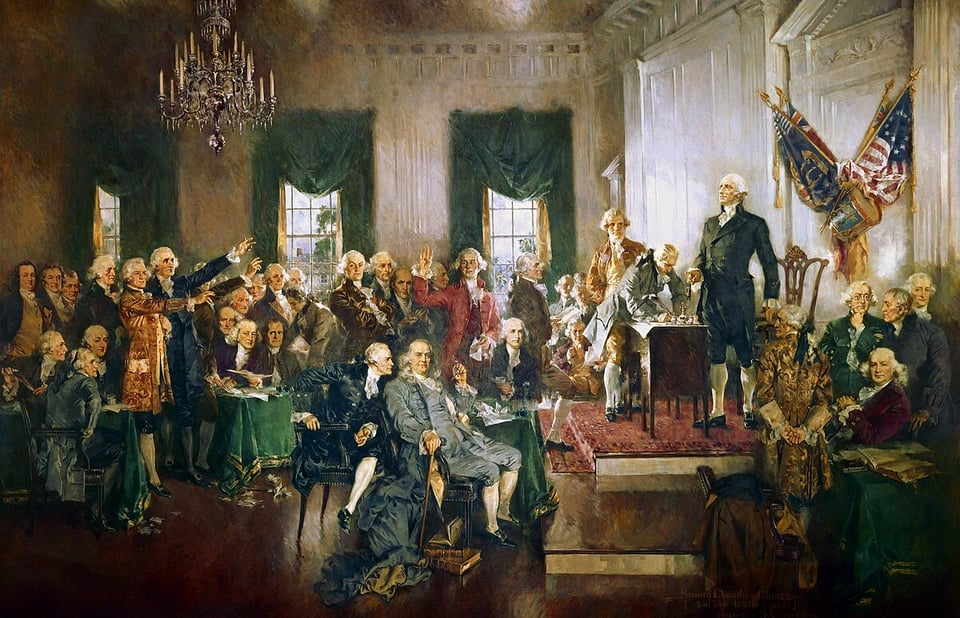
STEVE INSKEEP, HOST:
The writer Jill Lepore wrote a history of the United States called "These Truths." Now she's gone through the same history again for a book on the Constitution. She focuses on fights to amend or reinterpret our basic law long after it was drafted in 1787.
JILL LEPORE: I just really love the agitation of it all.
INSKEEP: The book "We The People" covers a lot of history. I asked Jill Lepore about one period that feels relevant now.
In the early 1900s, Americans confronted a growing industrial economy, income inequality and mass immigration. They responded with constitutional amendments from women's voting rights to an income tax. And a powerful president, Woodrow Wilson, reinterpreted the document.
LEPORE: Wilson had, in fact, been a constitutional scholar. He advocated what came to be called and is still often called living constitutionalism.
INSKEEP: Among other things, Wilson signed into law the creation of an independent Federal Reserve, setting aside claims that the Constitution did not allow it. That is the very same Fed whose independence President Trump is challenging now. Lepore says Wilson's idea of a living constitution differed from the framers' idea of the Constitution as a machine.
LEPORE: So when they talked about checks and balances, you know, they're picturing weights on strings balancing one another. And Wilson, he wanted to move beyond that notion, and he argued that the Constitution is an organism, a living thing that has to be allowed to grow naturally. And that remains, in many ways, a debate that Americans still have about the very nature of the Constitution.
INSKEEP: Woodrow Wilson, I have noticed, still bothers modern-day conservatives. I want to play a bit of a recent interview with John Yoo, who's a conservative legal scholar, talking about that. Let's listen.
(SOUNDBITE OF ARCHIVED NPR CONTENT)
JOHN YOO: People like Woodrow Wilson, who I think is in many ways the godfather of this idea, thought that there were scientific answers to public policy, that you could get things exactly right, and so that politics were a dirty, messy business. And the last thing you would want, then, if you created a Federal Trade Commission or the Federal Reserve, probably the most powerful of our independent agencies...
INSKEEP: Yeah.
YOO: ...Is to allow a president elected at the head of a party to govern what it does.
INSKEEP: What was it that Wilson and some of his successors, like Franklin Roosevelt, were doing to the government and to society?
LEPORE: Well, I think we just need to maybe pause for a moment to say that the left has also disavowed Wilson...
INSKEEP: True.
LEPORE: ...For his racism. Wilson was a Southerner who segregated the civil service. So Wilson and, of course, later FDR but a number of Republicans in between were all involved in fortifying the federal government to steer the United States through the turn to a modern industrial economy and to try to find ways to adjust the U.S. Constitution to keep pace with what these developments meant for ordinary people. One of the things I found really kind of fun in working on this book was - so you can find all the arguments that a John Yoo is making now - you can find those in the 1920s and 1930s.
INSKEEP: What was the effect on society that it was decided for that time that it was legal and constitutional - upheld by the Supreme Court incidentally - to have independent agencies, technocrats, people trying by their lights to apply the best solutions to various economic problems with at least some insulation from directly elected officials?
LEPORE: Well, you get the buffering of the forces of the market. You get an insulation against the worst excesses of monopoly. You know, by the time we get to the 1930s, democracies all over the world are collapsing. They're kind of going in either direction towards communism or towards fascism - you know, a kind of state-controlled economy. And FDR finds a way, a kind of compromise position to adjust the strictures within the Constitution to both protect the free market and also protect against the worst excesses of a free market.
INSKEEP: In listening to you, I think you're saying that Franklin Roosevelt and some other presidents had an idea to respond to an ever-larger and more powerful and more complicated economy with a more active government that was supposed to engage in the economy but not be under the hands of a dictator, as was happening in other countries around the world. Was that the idea that we're now to some extent challenging?
LEPORE: Yes. I mean, it is - FDR's agenda and his accomplishments are depicted by extremists as extreme for the purpose of demonizing the New Deal. That was the case in the 1930s. It was unsuccessful then. I think it will ultimately be unsuccessful now because the kinds of benefits that accrue to societies as a whole in having an active federal government, the more those provisions are dismantled and withdrawn from ordinary Americans, the more visible they become and their absence becomes more painful.
INSKEEP: What excites you when you go back to this era of people pushing for reform, pushing for changes to the Constitution or to its meaning?
LEPORE:
It's just a much bigger, more colorful, wildly interesting canvas of constitutional history that makes me feel quite a bit better about a sense of possibility moving forward. I think to the degree that we kind of narrow our vision and look through a very, very tiny, tiny lens like a little monocle (laughter), we feel kind of trapped in a very polarized and very stuck politics and very kind of stuck era of constitutionalism. But if you widen that out and look at the whole of American history in that broad canvas, with teaming actors with all kinds of loud opinions and silent protests and nonviolent action and everything else and in between, it's a kind of glorious history.
INSKEEP: You also, by taking this wide lens, make me think about unintended consequences. People push for a change, and it turns out that whatever they thought would happen is not what happened.
LEPORE: Yeah, absolutely. Sometimes people have been asking me, your book seems to be just celebrating amendment for its own sake (ph). Well, actually, a lot of amendment ideas are really terrible ideas, and some of them once put in place turn out to not have the effect that was hoped for or they're betrayed or they're defied. I mean, we're looking right now and - we're in a moment right now where the birthright citizenship clause, or the 14th Amendment, the Trump administration is insisting doesn't mean what it says. So, you know, there are very difficult constitutional battles ahead, but there's a lot to be learned from the way those battles were waged in the past.
INSKEEP: Jill Lepore is the author of "We The People: A History Of The U.S. Constitution." Such a pleasure to talk with you again, Jill.
LEPORE: Oh, thanks so much, Steve.
(SOUNDBITE OF MOTHER FALCON SONG, "TO MAMA") (NPR)
Keep your spirits up. Stay safe.
Take in the beauty and bounty of the earth.
